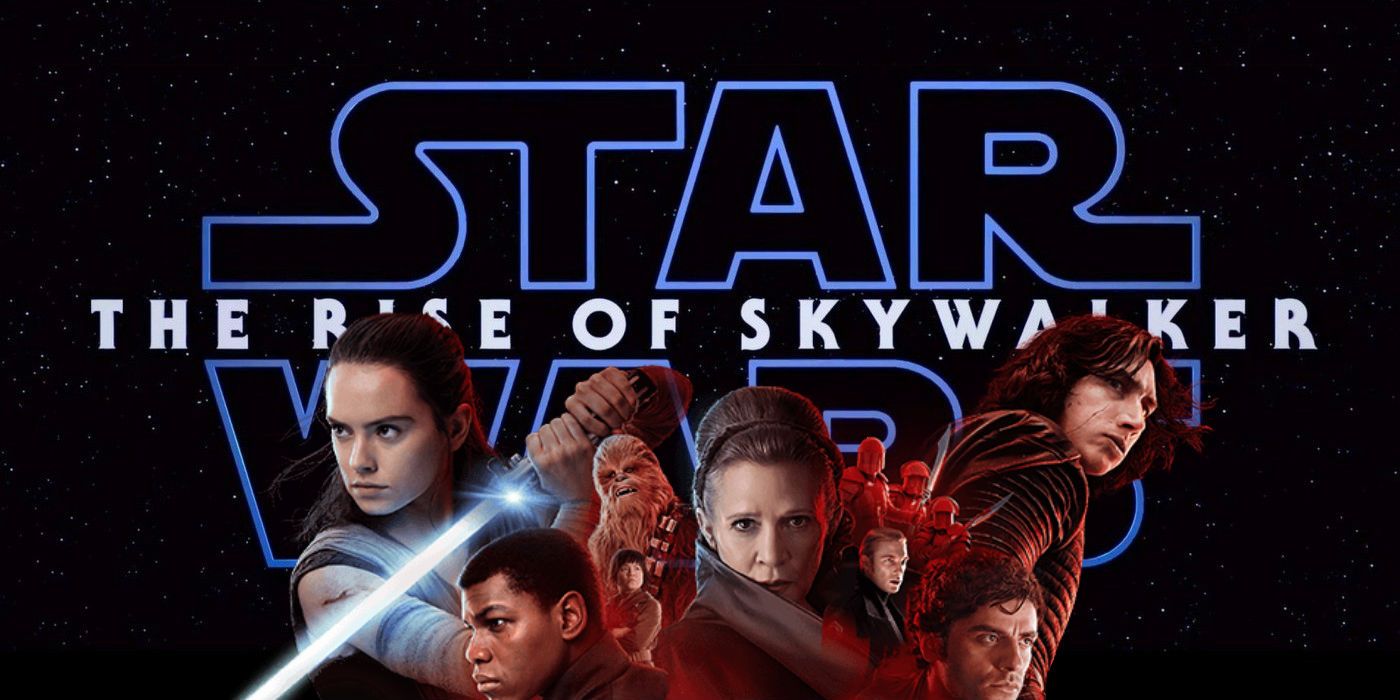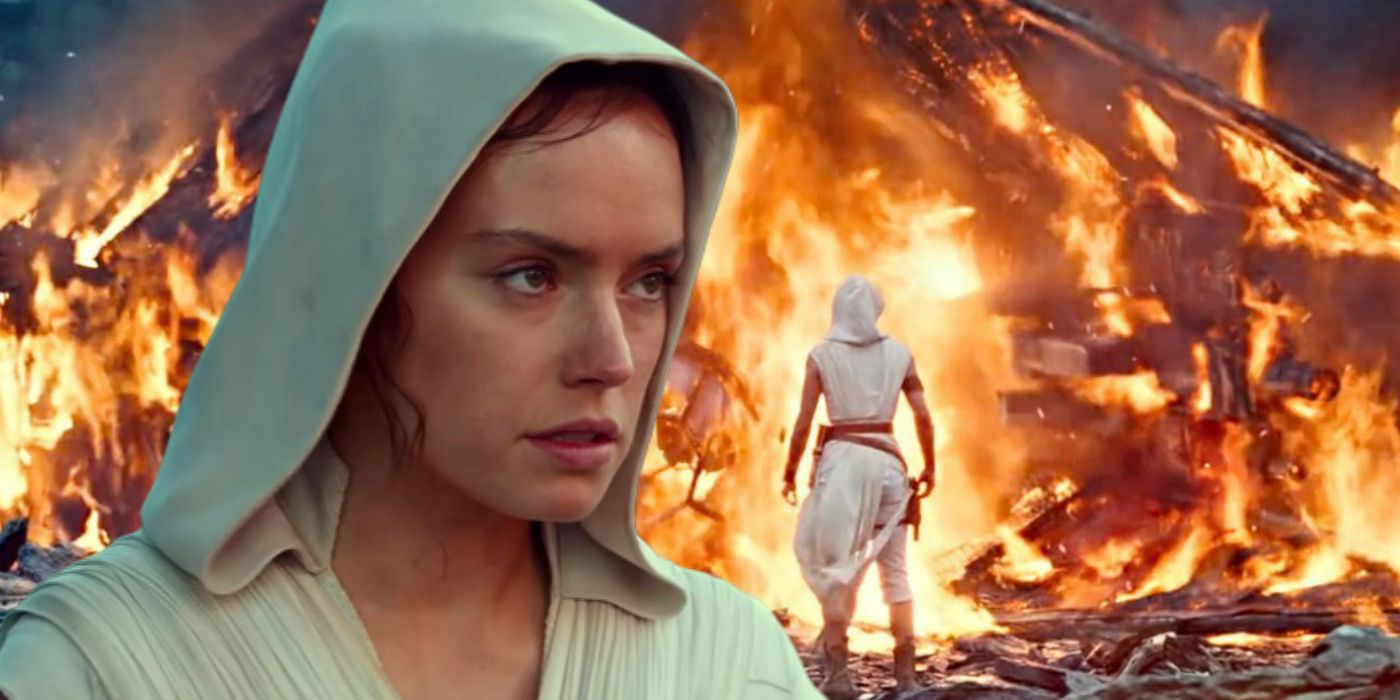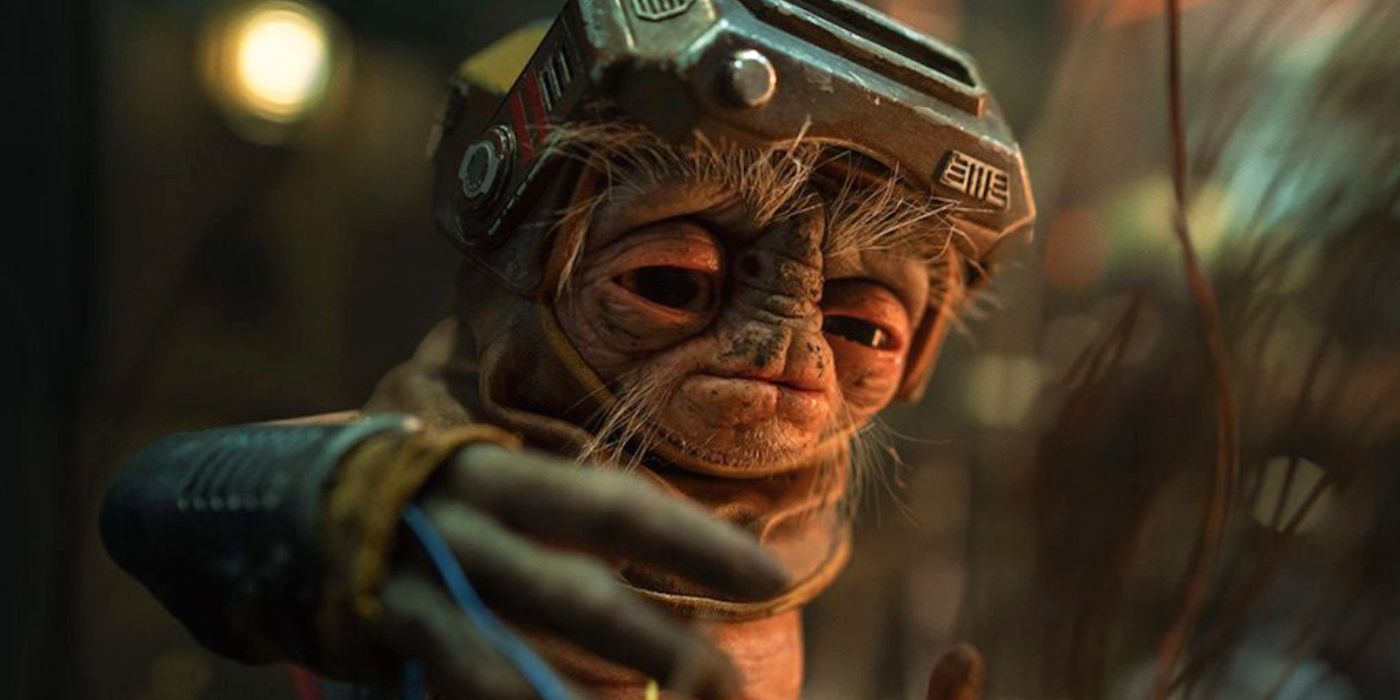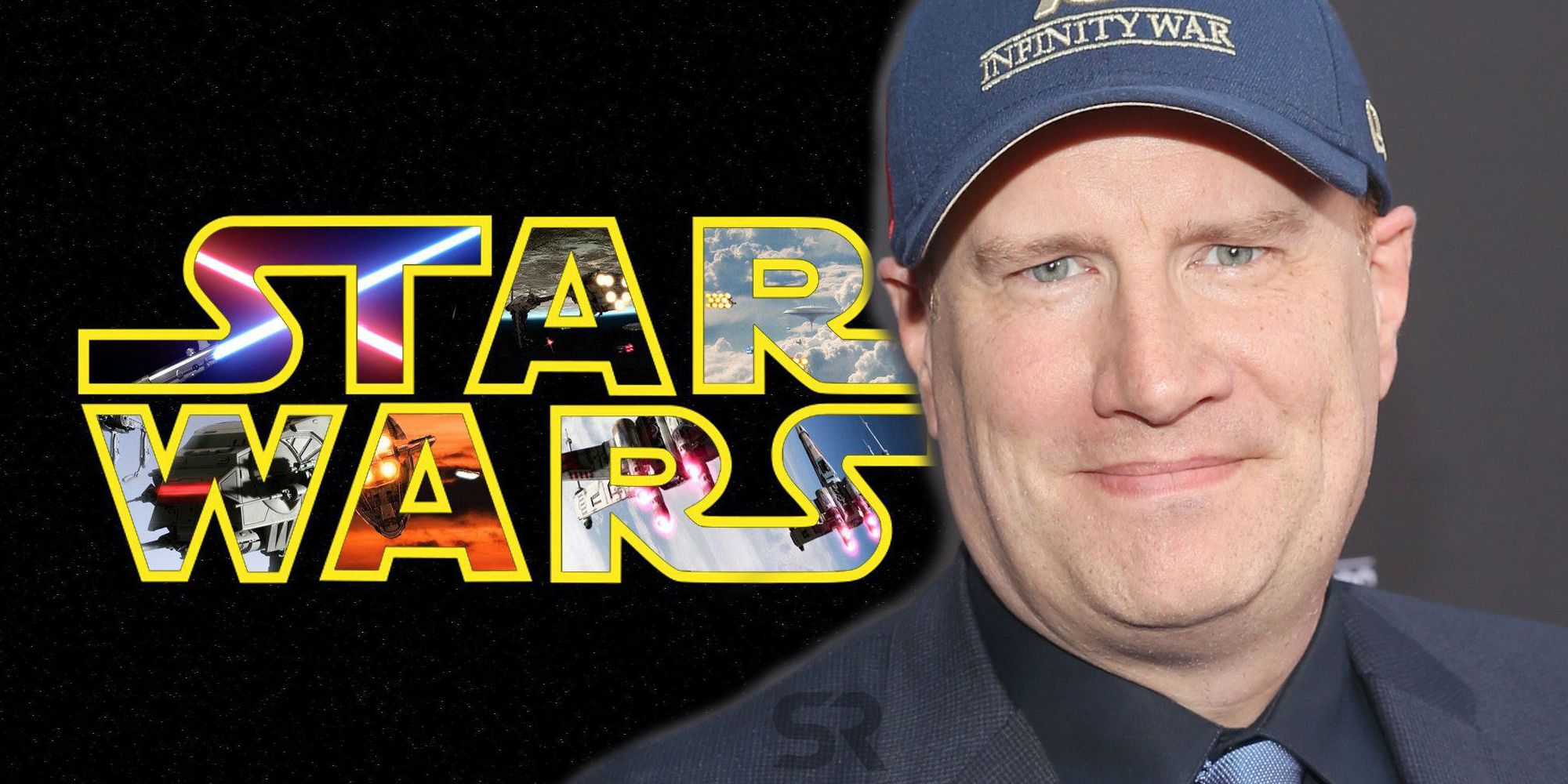Caution: Spoilers ahead for The Rise of Skywalker.
Why has Star Wars: The Rise of Skywalker sparked such considerable backlash and driven a wedge between fans and critics? After years of anticipation, the final chapter of the Skywalker saga has hit theaters and, predictably, the response has been far from unanimous. The latest adventure brings to a close not only the current sequel trilogy that began in 2015 with The Force Awakens, but also the entire big screen tale from 1977 to the present day, and this means there are numerous plot threads to tie up, character arcs to round off and mysteries to answer.
The Star Wars sequel trilogy has experienced a rollercoaster journey thus far. The Force Awakens released to virtually unanimous praise, with the only major criticism being that the plot was almost identical to that of A New Hope. Some were displeased with Lucasfilm's mouse-eared ownership before the ink on the deal had even dried, but discord truly began to spread with the release of Rian Johnson's The Last Jedi, a film that attempted a more unconventional take on the Star Wars template. While some praised the ambition and attempt to do things differently, others felt betrayed by a Star Wars film that felt distinctly unfamiliar compared to its predecessors. For two years, that anger turned to hatred, exacerbated by the poorly-received Solo, but it was hoped that J. J. Abrams could unite the fandom once again with a pleasing finale.
He could not. Reviews for The Rise of Skywalker largely lean towards the negative, but there has been plenty of positive comment from fans. What's causing such a partisan response on this occasion, and why, once again, do the critics and fans appear to be on opposing sides of the Star Wars divide?
Why Critics Don't Like Star Wars: The Rise Of Skywalker
The overriding criticism of The Rise of Skywalker at this early stage is that the film tries to pack far too much into its running time and ends up feeling bloated and shallow, with not enough space afforded to each of the film's many new ideas. Especially for a movie billed as the "final chapter," The Rise of Skywalker introduces so much in the way of fresh lore, new characters and previously unseen planets, but barely has opportunity to properly dig into any of it. The opening crawl was an omen of things to come, when Palpatine's resurrection and subsequent reveal to the galaxy is dealt with by a single line of text, rather than the huge on-screen scene such a massive development deserved.
From there, The Rise of Skywalker is a rapid blast-beat that rockets from one major event to the next, almost as if Abrams is trying to fit his second and third films into one 2-and-a-half hour running time. Unfortunately, The Rise of Skywalker gives itself so much to cover that most of the material ends up feeling glossed over. Leia's death should be monumental, but takes mere moments compared to Luke and Han's. New characters such as Zori Bliss and Jannah are only briefly touched upon. The Chewbacca fake-out death is undone within the space of a few scenes. Even the final battle feels relatively rushed, given that the struggle between Rey and Palpatine is the very battle the past 40 years have led up to.
Another reason many critics aren't keen on The Rise of Skywalker is because, whether Abrams is willing to admit it or not, the film does undo much of The Last Jedi. Reviews were generally far kinder to Rian Johnson's middle child than fans, so the deliberate retcons made in The Rise of Skywalker do leave somewhat of a sting for those who enjoyed the previous offering, since there's very little sense of continuation between Episodes 8 and 9.
The phrase "fan service" can be found in many The Rise of Skywalker reviews, and it's easy to see why. Scenes such as the Rey and Kylo kiss and the reveal that Rey is a Palpatine directly address things many fans claimed they wanted to see, but both have minimal impact on the actual plot. Rey and Kylo's connection didn't need to be romantic in nature in order to be valid, and Palpatine has always coveted those strong with the Force, regardless of their blood relation to him. Both events merely exist to please a certain section of the fandom.
Why Audiences Like Star Wars: The Rise Of Skywalker (Mostly)
Despite The Rise of Skywalker's negative reviews, there is plenty of positivity coming from audiences, who are praising the effort as a fitting end to the Skywalker saga. The reason behind this divide can perhaps be encapsulated by the film's current score on Rotten Tomatoes, where the critic and audience scores are the polar opposite to those garnered by The Last Jedi. Many reviewers seem to dislike The Rise of Skywalker because it's essentially a big middle finger to Rian Johnson's film, but a lot of fans are celebrating the new release for that exact same reason.
Some viewers felt monumentally let down when Snoke was unceremoniously killed off by Kylo Ren, and when Rey's parents were revealed to be of no importance. Although there are merits to both creative choices, they're intentionally controversial and unconventional moments that run the risk of leaving viewers feeling cheated by the rug-pull. The Rise of Skywalker is a salve to those wounds, giving any disappointed fans exactly what they've spent the last 2 years saying they wanted from the sequel trilogy.
This is clearly an intentional move on the part of Disney and J. J. Abrams, but it's one that forced them to choose between continuing on the established path or hitting the reset button. While the former option would've resulted in a more evenly paced and cohesive story, the franchise would've been stuck with story developments that a lot of viewers didn't much like. If Abrams chose the retcon option, fan issues with The Last Jedi would be fixed, but the added work and exposition involved would mean a very packed narrative with little room for maneuver. Essentially, The Rise of Skywalker was going to please either fans or critics, but never both. Whatever side of the divide one falls, however, it's impossible to deny that The Rise of Skywalker looks beautiful and includes several albums' worth of iconic, striking visuals.
There's certainly no "right" or "wrong" way to interpret The Rise of Skywalker, merely different sides looking for different qualities. Reviews naturally compare their subject not just to previous efforts in the franchise, but also to the wider world of film. This practice can often highlight shortcomings that would otherwise slip through unnoticed and The Rise of Skywalker is certainly a film where looking too closely can be detrimental to enjoyment. Equally, those who demanded different explanations to the mysteries set up by The Force Awakens are perfectly entitled to want answers more in keeping with the traditional Star Wars flavor, and The Rise of Skywalker certainly delivers on that promise.
What The Rise Of Skywalker Backlash Means For Star Wars' Future
One school of thought might suggest that so long as The Rise of Skywalker rakes in the cash, Disney will see no need to alter their plans for the franchise. Recent history, however, suggests otherwise, and Disney have been incredibly reactive to how their Star Wars movies have been received thus far. For example, the backlash to The Last Jedi seemed to play a part in Abrams' return to the director's chair, and the failure of Solo resulted in a planned Boba Fett movie being remolded into The Mandalorian. It's too early to tell how deep the backlash to The Rise of Skywalker will go, or whether popular opinion will ensure the film is remembered as a success, but a strong negative response coupled with under-performance at the box office could trigger a change of direction.
And it's certainly possible that poor reviews could dent The Rise of Skywalker's box office. Following the initial wave of negative reviews, box office predictions for the film dipped to $160-190 million. While obviously still nothing to be sniffed at, that sum is considerably lower than how The Force Awakens fared and only slightly up from spinoff release, Rogue One: A Star Wars Story. Even if The Rise of Skywalker makes a tidy profit, Disney will be concerned that the figures are on a downward slope.
Creatively, this could mean two things, one of which would be a complete move away from the current story. Disney is already putting emphasis on ending the Skywalker saga, but how far they take that concept remains to be seen. The fact that Rey's final moments show her with a brand new lightsaber and adopting the Skywalker name might've suggested some sort of carry-over in future films, but if The Rise of Skywalker underperforms, Disney might be tempted to start from scratch, especially when they've been having such success with the largely standalone The Mandalorian.
Another possibility is brand new leadership. Kathleen Kennedy is the current president of Lucasfilm, and while she was promoted to that position after Disney's takeover, she was first hired while George Lucas was still at the helm. If the Star Wars sequel trilogy ends on a sour note, new blood might be in order and Disney have just the person waiting in the wings - Marvel's Kevin Feige. After masterminding the phenomenally successful MCU franchise, it was announced in September that the producer would be working on a future Star Wars movie, however, subsequent reports reiterated he was not assuming leadership of the franchise. Given Feige's track record, Disney's huge investment in Star Wars and the struggles currently facing The Rise of Skywalker, that could be about to change.




